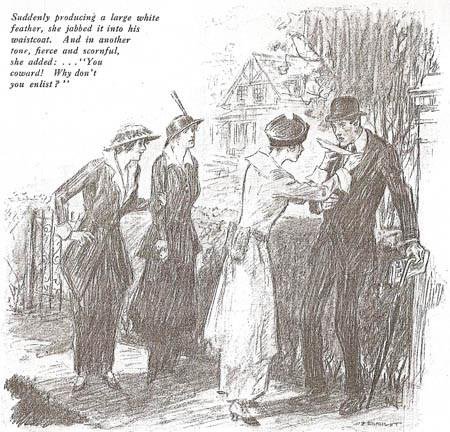
The Hiker's Dilemma

How to take care of your tribe
The other day I read:
"If you're hiking and you stop to let other people catch up, don't start walking immediately when they arrive. Because that means you got a rest and they didn't. I think about this a lot."
I want to dissect this sentiment because I also think it says a whole lot, but probably not the way the poster meant it. It's a perfect example of something that seems to pass for empathetic wisdom, but actually holds very little true empathy: an understanding of people who actually think differently from each other.
Point of Interest
Let's start with the obvious: the implication is that anyone who doesn't follow this advice is some kind of asshole. That's why people so readily shared it: it signals concern for the less able. A "fast hiker" denies others reasonable rest, mainly for their own selfish satisfaction, like some kind of bully or slave driver. But this implication is based on a few hidden assumptions.
Most obviously, it frames the situation as one in which only the slow hikers' needs are important. They don't get to enjoy the hike, because they arrive exhausted and beat. Meanwhile those "selfish" fast hikers are fully rested, and even get to walk at pace that is leisurely for them, if they want. So any additional rest is a luxury they don't even need. Still, they refuse to grant it to others unless they are properly educated. How rude.
To me, it seems that neither fast nor slow is actually happy in this situation. The kind of person who is fit enough to hike quickly, and faster than the rest, is likely the kind of person who wants to "feel the burn" in their muscles, and enjoys being exhausted at the end of the day. Meanwhile the kind of person who walks slowly, and complains about not being able to keep up, simply doesn't see extreme exertion and pushing their limits as a net plus.
Indeed, it assumes that it's very important for the entire group to stick together. That it would be bad to split up, or for someone to be left walking alone behind the pack. And also, that simply by walking ahead of others, you are forcing people to keep up, by excluding them and making them look bad. This implies that the goal of the hike is mainly social and tribal, and not e.g. exercise, or exploration, or developing self-sufficiency. But unless you're hiking in dangerous wilderness, there is no hard reason to prefer larger numbers.

Experienced hikers know that trails are typically classified by steepness and challenge. Certain places are also fine some times of the year, but not in snow or rain. Sometimes it involves ropes and mudslides. The entire idea of one-size-fits-all hiking trails is simply unrealistic, because those are called garden paths, and they usually have wheelchair ramps.
You can't even say that "average" walkers in the middle of the pack are automatically setting out the reasonable compromise, simply because that's what the majority in the group is comfortable with. Because what's considered average depends entirely on who shows up, and where they want to go.
The original "lesson" is not actually about respecting people's needs, or about ensuring accessibility for all. It's mainly about disregarding some people's preferences entirely in favor of certain others, holding up some arbitrary level of preference and skill as the norm. What's too far ahead is considered unreasonable. But if you take the advice to its logical conclusion, it would mean that everyone has to perform at the lowest common level, even if someone obviously doesn't belong there, and would be happier elsewhere.
In a world where many consider direct criticism a taboo, this to me is a far more valuable lesson, even if it's a far less agreeable and comfortable interpretation. If it seems absolute, that's itself a mistake: life is not a singular hike, measured on a single yardstick. We lead in some areas, and straggle in others. If you find yourself constantly lagging behind, you should find a different hiking group, instead of demanding that everyone else slow down. If you are leading and getting bored, don't be afraid to scout ahead: you'll be happier too.


It's Physics, Jim
There's another lesson buried here, which is worth exploring: why is it that some hikers can effortlessly go up and down winding paths for hours, while others can barely manage to keep up? Simply chalking it up to physical strength or fitness is not enough.
Imagine you are asked to move a bunch of heavy items from one place to another. You are given a choice of either a crate or a small wagon, both exactly the same size. I doubt anyone would prefer the crate, because we all understand the physics involved on an intuitive level. When you pull a wagon, you only exert yourself when you're trying to move it; but in order to use the crate, you must first lift it up, and then keep it suspended in the air. Even if you don't move while holding the crate, your arms will get tired.
This means that the effort required to use the wagon depends mainly on the distance and mass you need to move. Whereas the effort required for the crate also involves the amount of time you are holding the crate up. If you move it more slowly, you spend more of your energy simply staying in place. In contrast, the faster you move it, the less energy it wastes, even if it momentarily takes more effort. The next time you carry some heavy groceries into the house, observe your own movements, particularly the last "nudge" to get them onto the kitchen counter, and you will realize you already knew this.
This too applies to the hiking scenario: if you're climbing a slope, then simply staying upright takes significant physical effort. If you can ascend faster, you actually waste less of your energy doing so. When descending, the same applies: the harder you push back against gravity, the more tired you will get. Becoming an experienced hiker means developing a natural sense of balance and motion that takes maximum advantage of this. While climbing, you will learn to quickly push through any difficult spots, spending more time with your feet on solid, level ground. While descending, you will let yourself fall from ledge to ledge. You learn to move more like a wagon, less like a crate. Obviously it also helps to have the right wheels, aka footwear.
This is really general life advice. If you spend your time stressed, dealing with chaotic communication and planning, suffering the fallout of past mistakes, yours or others', then you're constantly standing on uneasy ground, wasting your energy just staying in place. If you can instead recognize trouble ahead, and know where you're going to plant your feet, it can feel effortless.
People make the same argument about e.g. obesity or poverty, that it creates a vicious cycle of reinforcing conditions. But they often fail to make the distinction in the two different ways to address it, because their main concern is a non-descript offer of aid and concern. If someone is standing on a slope, you don't just offer them your hand and let them hold on indefinitely, wasting both people's energy, because you will soon both fall down. You should instead get them on solid ground instead, and get them to move better on their own. If someone wants sympathy and aid but rejects offers of working on a solution, that means they don't want to expend any effort in solving it themselves.
There is however a flipside here: offers of aid have to be genuine and clearly stated. If someone is struggling socially, telling them to "just be yourself" is obliviousness masquerading as advice. Telling someone to open up, when you don't actually want to hear their point of view, is purely for self-satisfaction.
Here too, criticism and empathy are typically perceived as being at odds: the person who criticises unfruitful ways of offering aid is dismissed as uncaring, even if they are reading the situation better than most. But if everyone suddenly turns back and runs down a slippery slope again without thinking, being the loud asshole who asks what the hell they are doing is actually the sane thing to do.


Evo Psych Too
I don't think it's a coincidence that this morality lesson comes in the form of a hiking story. In our modern world, hiking is mainly a leisure activity, undertaken exactly because it speaks to our distant past of small tribes roaming in dangerous wilds: watch out for bears and bandits, stay in contact with each other, always be prepared, and don't underestimate the elements.
Unlike the clean and artificial environment of a gym, nature offers us an unfiltered and barely controllable obstacle course, where some of our lesser used instincts can come back to the forefront. All it takes is one storm to turn a carefully manicured park into a new wild challenge, which is accessible to some and inhospitable to others.
This is a contrast which contemporary society is very uneasy to acknowledge. Under the guise of equality and tolerance, anything that threatens to separate the men from the boys, or the men from the women, is considered improper in the "right" circles. Yet evolutionary psychology is impossible to ignore on this point: tens of thousands of years of selective pressure have cleaved humanity down the middle, creating entirely different social expectations. The most important data point here comes from our notions of bravery and cowardice.
Bravery is a virtue both men and women can have: fearlessness in the face of danger. Yet cowardice is a vice reserved uniquely for men: women can indulge in it as much as they like, with no social repercussions.
Today, you can see this split clearly in the discussion around refugees. While women are said to "flee from danger", men are accused of "leaving people behind". The presence of children is usually said to make the difference, but the crucial point here is of course whom the children are assumed to be safer with. If you think that's the mother, then you are tacitly admitting that you believe she is more likely to—and perhaps more deserving of—receiving unconditional aid and shelter, even in a war zone.
Furthermore, the archetype of a mean girl is someone who uses an authority figure to do her dirty work. This ought to register as cowardly, but simply doesn't. Despite half a century of organized gender study, I know of no feminist who has seriously endeavored for this patriarchal social construct to be dismantled. Indeed, women's groups shaming men for cowardice in a time of war is a historical fact.
In hiking terms, it means that those who have learned to navigate dangerous terrain out of necessity are oddly assumed to be unreasonably privileged, while those who instinctively expect the presence of ropes and steps are said to be disadvantaged. This is entirely backwards to me, but it also seems obvious there is no convincing people otherwise. All you can do is realize that there are some who persistently demand you help them up, but who will never extend the same courtesy in return. They do so without ever feeling any shame about it, so you must draw your lessons accordingly.
* * *
This is a far less agreeable and happy-go-lucky interpretation of the hiker's dilemma, and one I doubt typical virtue peddlers will be comfortable with.
The original underlying sentiment was that social concerns and group norms always override meritocracy. That there is no reasonable view otherwise. But social issues are themselves difficult hurdles to navigate and path around, almost always subjective and based entirely on the framing. In doing so, proponents are merely striving for a meritocracy based on a different scoring system, one where they come out on top and ahead, far from risk and danger. It's cowardly not to admit it. And if it threatens to wash away all that was built, then it's imperative to oppose it.
(If you think this is a call for war, you are not paying attention.)
